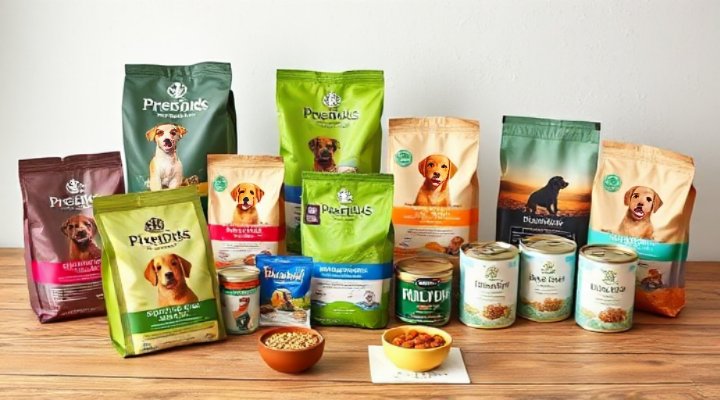When it comes to raising a healthy puppy, nutrition plays a pivotal role. That’s why we’ve compiled these comprehensive puppy food recommendations to help you navigate the overwhelming world of pet nutrition. After all, your little furball deserves nothing but the best!

Understanding Puppy Nutritional Needs
Puppies have different nutritional requirements compared to adult dogs. They need more protein, fat, and certain vitamins and minerals to support their rapid growth and development. According to the American Veterinary Medical Association, proper nutrition during puppyhood can prevent health issues later in life.
For instance, when I first got my golden retriever Max, I made the mistake of feeding him adult dog food. Consequently, he wasn’t getting enough calories and nutrients. After consulting with our vet and switching to a proper puppy formula, his energy levels improved dramatically!
Key Nutrients for Growing Puppies
- Protein: Building blocks for muscles and tissues
- DHA: Supports brain and eye development
- Calcium & Phosphorus: Essential for bone growth
- Antioxidants: Boost immune system

Top Puppy Food Recommendations
After extensive research and consultation with veterinarians, here are our top puppy food recommendations that provide complete and balanced nutrition:
1. Royal Canin Puppy Formula
As we’ve discussed in our Royal Canin Puppy Food Review, this brand offers breed-specific formulas that cater to different puppy sizes. The kibble size is perfect for small mouths, and it contains prebiotics for digestive health.
2. Purina Pro Plan Puppy
This formula includes live probiotics for digestive and immune health. The Purina Pro Plan review highlights its high-quality protein sources and DHA content for brain development.
3. Taste of the Wild Puppy Formula
For those interested in grain-free options, our Taste of the Wild review explains how this food uses novel proteins and probiotics for sensitive stomachs.

Special Considerations for Puppy Food
While our puppy food recommendations cover most situations, some puppies have special needs:
For Small Breed Puppies
Small breeds have faster metabolisms and need more calorie-dense food. Check out our guide on best food for small breeds for specific recommendations.
For Puppies with Allergies
If your puppy shows signs of food allergies, our hypoallergenic dog food guide can help you identify suitable options.

Transitioning to New Food
When switching to any of our puppy food recommendations, remember to transition gradually over 7-10 days to avoid digestive upset. Start with 25% new food mixed with 75% old food, and slowly increase the ratio.
Most importantly, always consult with your veterinarian before making significant changes to your puppy’s diet. They can provide personalized advice based on your puppy’s breed, size, and health status.
By following these puppy food recommendations, you’re setting your furry friend up for a lifetime of good health. After all, a well-nourished puppy is a happy puppy!
Related Keywords: best puppy food brands, puppy nutrition guide, high protein puppy food, grain free puppy food, small breed puppy food
